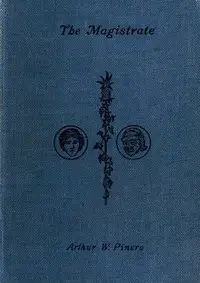"The Tenth Man: A Tragic Comedy in Three Acts" by W. Somerset Maugham is a play that explores the tangled lives of Catherine and George Winter amidst early 20th-century society, where appearances are everything. Set in the home of Lord Francis Etchingham, the story begins with Catherine’s shocking split from her influential financier husband, George, sending ripples through their families and social circles. The play follows Catherine's struggle for independence against George's controlling nature and the ensuing fallout, revealing a world where love is tested by betrayal and financial stakes are high. The narrative unfolds with dramatic tension, highlighting moral conflicts and the clash between personal desires and societal pressures, all while questioning the price of power and the weight of public image.

The Tenth Man: A Tragic Comedy in Three Acts
By W. Somerset (William Somerset) Maugham
A controlling husband, a runaway wife, and a family's desperate attempt to salvage their reputation reveals a dark world of manipulation where love clashes with societal expectations.
Summary
About the AuthorWilliam Somerset Maugham was an English writer, known for his plays, novels and short stories. Born in Paris, where he spent his first ten years, Maugham was schooled in England and went to a German university. He became a medical student in London and qualified as a physician in 1897. He never practised medicine, and became a full-time writer. His first novel, Liza of Lambeth (1897), a study of life in the slums, attracted attention, but it was as a playwright that he first achieved national celebrity. By 1908 he had four plays running at once in the West End of London. He wrote his 32nd and last play in 1933, after which he abandoned the theatre and concentrated on novels and short stories.
William Somerset Maugham was an English writer, known for his plays, novels and short stories. Born in Paris, where he spent his first ten years, Maugham was schooled in England and went to a German university. He became a medical student in London and qualified as a physician in 1897. He never practised medicine, and became a full-time writer. His first novel, Liza of Lambeth (1897), a study of life in the slums, attracted attention, but it was as a playwright that he first achieved national celebrity. By 1908 he had four plays running at once in the West End of London. He wrote his 32nd and last play in 1933, after which he abandoned the theatre and concentrated on novels and short stories.



















